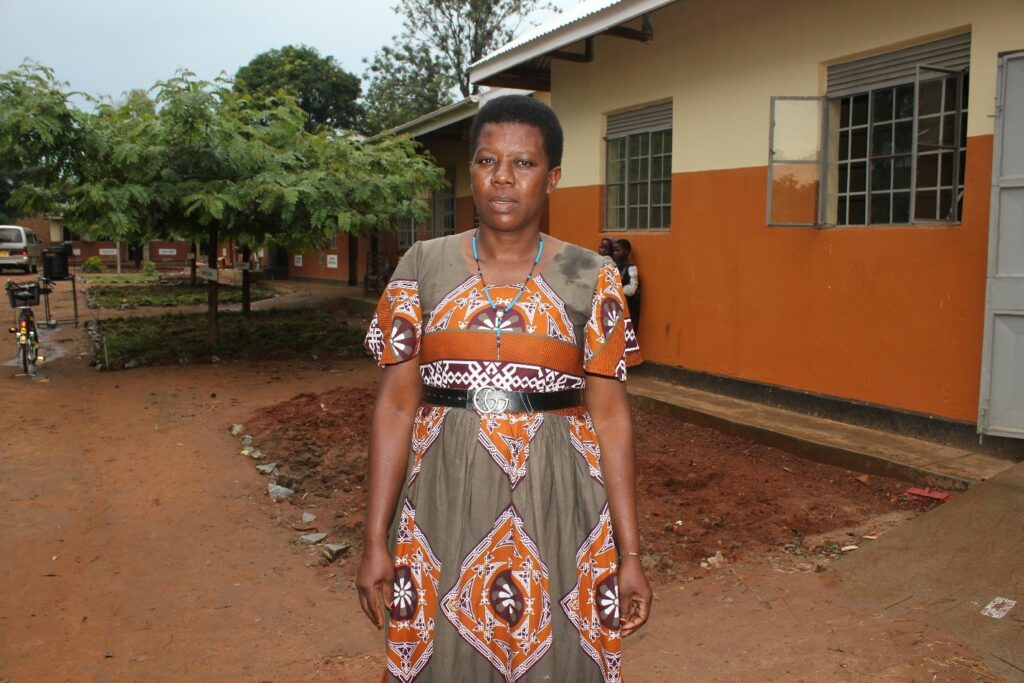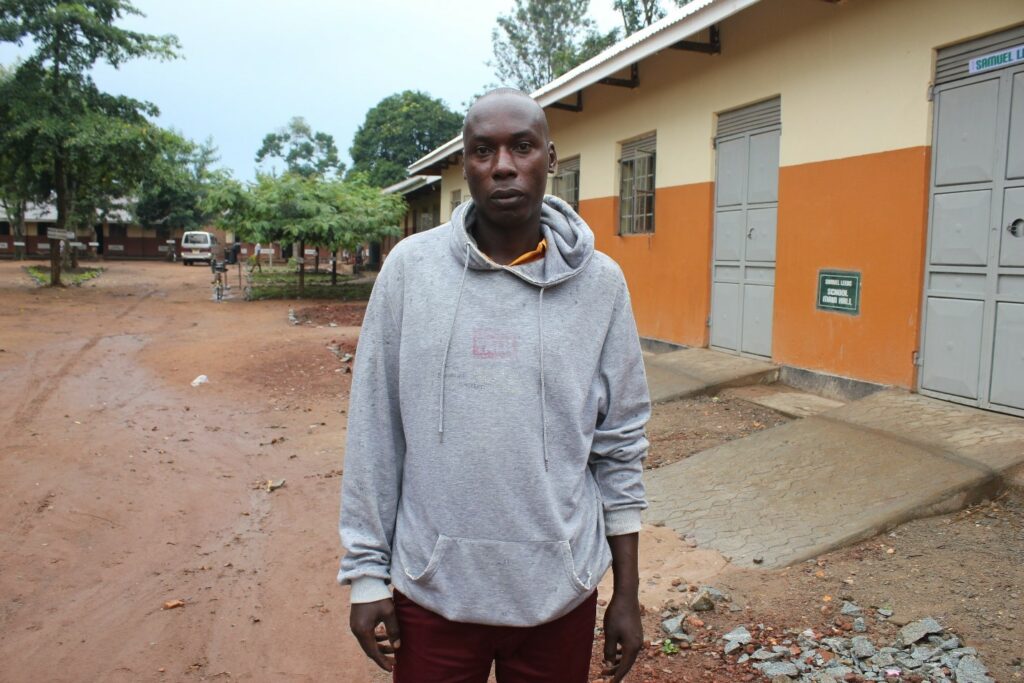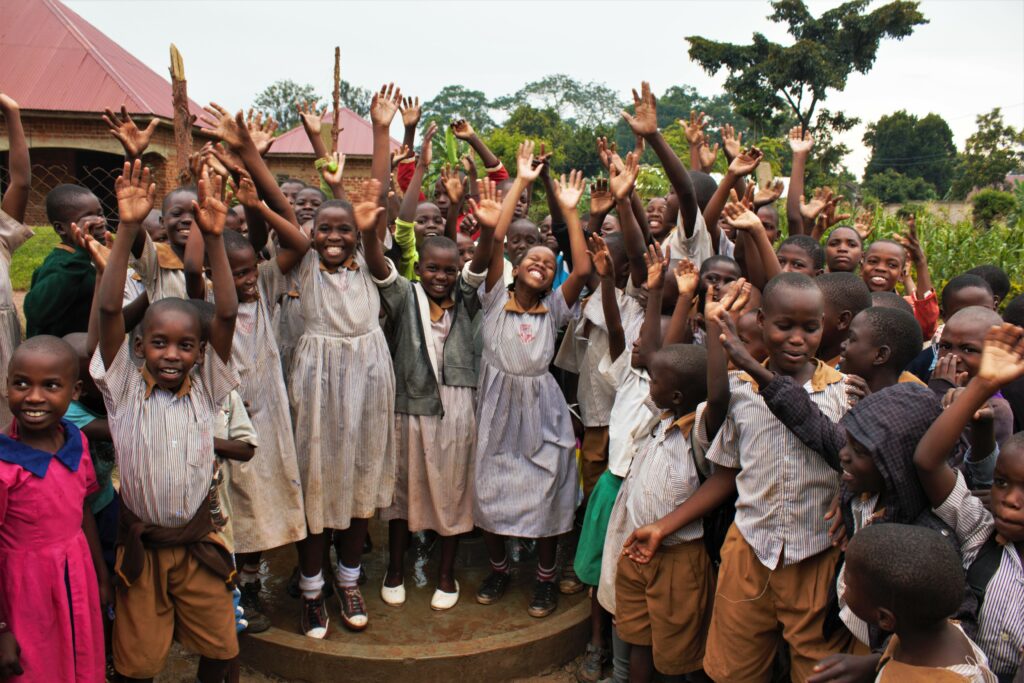Bulubandi Primary School is one of the largest schools in eastern Uganda. With over 2,000 students, spanning grades 1 through 7, the head teacher, Naigaga Madinga well understands the magnitude of her job and is grateful for the fact that her school was transformed by clean water.
 Naigaga Madinga headteacher from the Bulubandi Primary School in Uganda
Naigaga Madinga headteacher from the Bulubandi Primary School in Uganda
“Running a school this size requires infrastructure and resources. As you can see, everything we need here is in large numbers,” says Madinga. “I have been teaching at this school for 14 years and in all of that time, we have never had a reliable and continuous source of clean water.”
She goes on to explain that the large government-funded school had partial access to two water sources, but both were unreliable.
One was a community borehole that was always crowded. Here the women began lining up early in the morning, with their jerry cans marking their location in line. Because they needed this water for their daily domestic workload of cooking, washing clothes, cleaning, and bathing children, they were not interested in the students cutting in their line to get a drink from the already-crowded water point. And tensions would brew.
The second option was piped municipal water. But this was not a sustainable solution. For one, the piped-water supply only worked intermittently. According to Mukiza, the water would dry up for weeks at a time. And in addition to that, paying for municipal water was completely unaffordable for a school the size of Bulubandi.
The lack of water brought many challenges to the large school. But the loudest complaint came from the boy students. They were not allowed to play sports!
Like boys throughout sub-Saharan Africa, the students at Bulubandi love to play soccer. It was not uncommon to have nearly 1000 children running after a ball during recess. And, in the Ugandan heat, that made for a lot of thirsty kids.
The administration legitimately feared that the students could pass out from dehydration.
The Impact of Clean Water on Academic Performance
 Muhondo Eric, the senior male teacher at Bulubandi primary school in Uganda
Muhondo Eric, the senior male teacher at Bulubandi primary school in Uganda
According to Muhondo Eric, the senior male teacher at the school, “Nobody at the school wanted to stop the children from having fun, but we had to limit how much they could play and sweat because of water rationing.”
Now that DROP has drilled and we have a permanent water solution, we no longer have to worry about rationing. The students are back to playing sports and tensions have settled. In addition, their academic performance and daily attendance also seem to be improving.
Community Response and Future Plans
Since the installation of the new water source, the community surrounding Bulubandi Primary School has also benefited. Access to clean water has improved hygiene and health outcomes for the entire school, but they are not the only ones whose lives have been transformed by clean water. All of the families living nearby are also now using and enjoying the well. There are even discussions underway about further community projects to enhance sanitation facilities and educational resources.
According to Madinga, “We are grateful for this new water source for many reasons. For one, it gives the school a clean, consistent and reliable water supply. That solved many very problems for the school. And there is no need to ration water, or fun, anymore.”
 Students excited about the new well at Bulubandi Primary School in Uganda
Students excited about the new well at Bulubandi Primary School in Uganda
